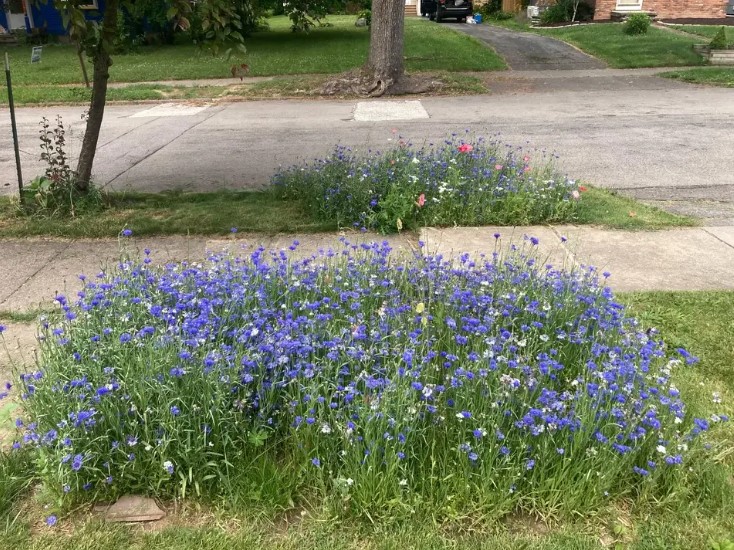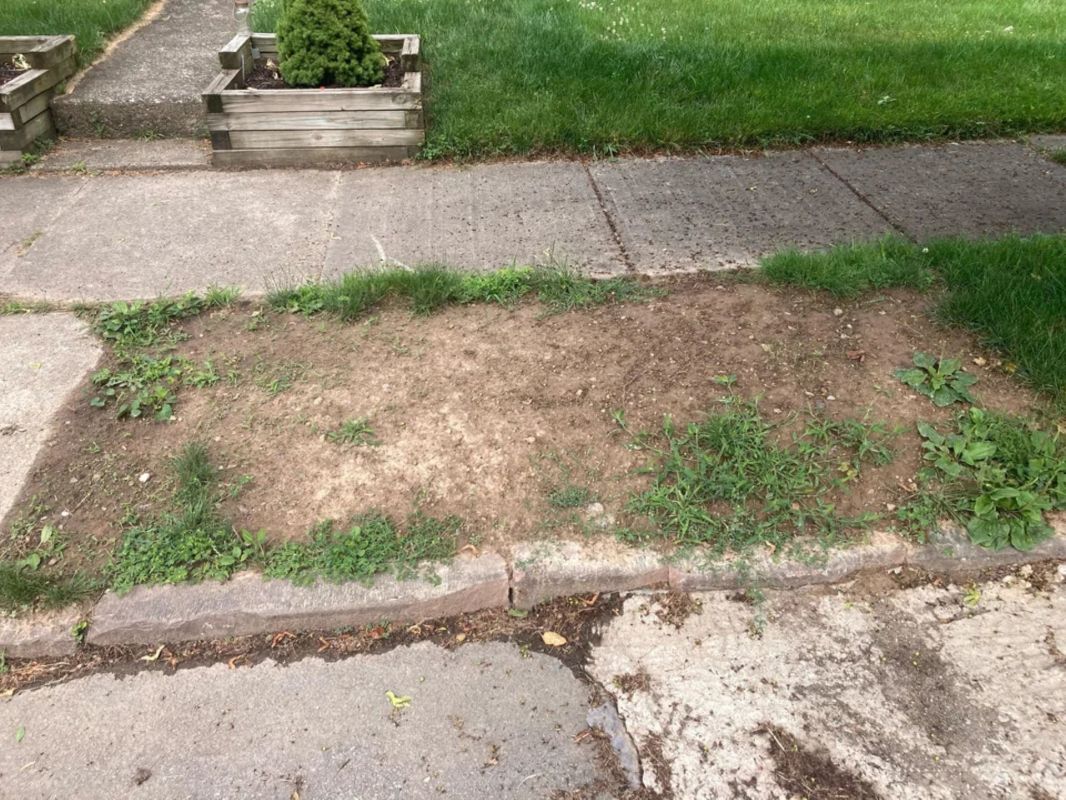When one Redditor posted transformation photos of a dirt patch in the front yard, concerned commenters quickly jumped in with advice. The Redditor celebrated the blossoming, once-barren space, but others noted a problem with the wildflowers.
In the r/NoLawns post, the before photo shows a bare rectangle of dirt and weeds after the city dug it up for maintenance. The after photo showcases a dense cover of purple wildflowers occupying the previously empty space.
While the Redditor beamed at the colorful blossoms, others stepped in with warnings and advice. "I'd recommend pulling/cutting those before they go to seed, they are invasive from Europe," one commenter suggested.

Many commenters praised the effort to rewild the space, listing resources for finding native plants for the region. 'I'll help you find natives too if you need some extra help OP," one replied.
One commenter identified the invasive plants as European blue cornflowers, while another shared a website with alternative species native to North America with similar blooms.
Rewilding grass lawns with native plants is taking root across North America. In addition to supporting pollinators and beautifying spaces, this landscaping trend comes with cost-saving benefits.
Today's Homeowner estimated weekly yard watering during the summer could cost $50-$156 each month. That's not including the cost of toxic pesticides and weed killers as well as lawn mower maintenance.
At-home rewilding creates welcoming spaces for native species to thrive, including essential pollinators. This style of lawn management brings beauty and color without the use of harmful chemicals that can poison animals, pollute groundwater, and damage the quality of the soil.
As the movement grows, so do the resources available for transitioning lawns to native havens. While helpful information can be found at local extension offices and community gardens, companies like Yardzen make the change even easier by doing the design work for you.
Yardzen's American Rewilding Project creates natural, low-maintenance yard spaces that can save homeowners time, money, and effort. The project promotes biodiversity through the use of "climate-adapted and habitat-supporting plants in yards throughout the United States … [creating] natural habitats for beneficial insects and pollinating birds, bees, and butterflies."
Whether professionally designed or DIY, the rewilding community loves sharing knowledge and successes with one another as the movement continues to grow.
Join our free newsletter for easy tips to save more, waste less, and help yourself while helping the planet.









